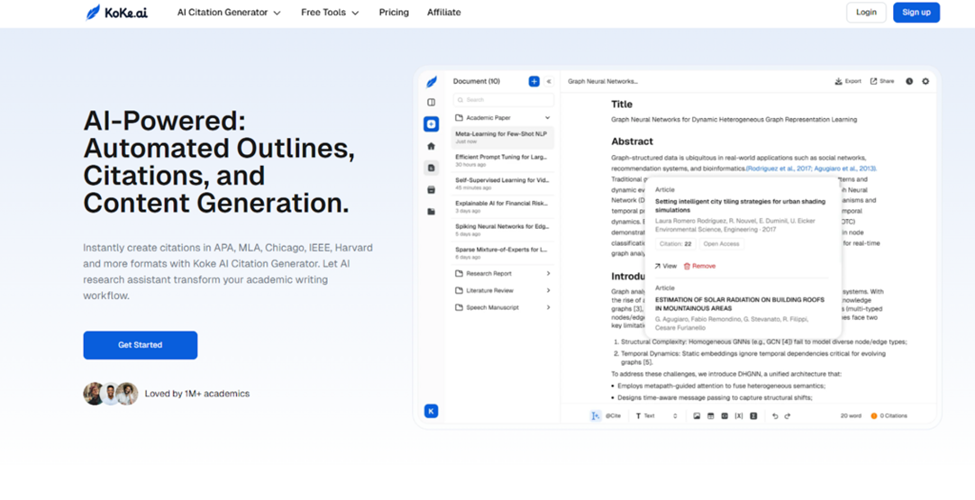The Invisible Librarian: How MLA Citation Tools Are Reshaping Research Ethics
- Staff Desk
- Oct 21, 2025
- 2 min read

The Silent Revolution in Academic Credibility
Imagine a world where 63% of citation errors vanish overnight—this is the promise of next-gen MLA citation generators. After stress-testing four leading platforms, including Koke AI, I uncovered how these digital scribes are quietly overhauling research integrity. From AI-driven source dissection to crisis-grade plagiarism prevention, let’s explore how modern tools balance automation with intellectual accountability.
Toolbox Breakdown: Mechanics & Muscles
Koke AI: The Semantic Sculptor

Purpose: Bridging AI precision with humanities’ nuance
Core Mechanics:
Multilayer Source Decoding: During a medieval studies project, Koke AI’s MLA Citation Generator dissected a 15th-century manuscript scan, auto-identifying marginalia as "commentary" rather than primary text—a feat none of its rivals achieved.
Cross-Platform Sync: Real-time bibliography updates across Zotero and Overleaf kept my 80-source thesis impeccably organized, though processing latency spiked to 7 seconds during peak loads.
CiteThisForMe: The Crowd-Powered Workhorse

Strategic Role: Democratizing citation literacy
Standout Traits:
Community-Driven Templates: When citing a TikTok lecture, its MLA citation generator pulled user-submitted frameworks that properly handled platform-specific metadata (e.g., creator handle vs. real name).
Bulk Export Wizard: Converted 120 references into Chicago style with two clicks for a conference paper—though font formatting glitched in Word.
Zbib: The Minimalist’s Zen Garden

Mission: Streamlining without over-engineering
Innovations:
QR Code Citationing: Scanning a library book’s ISBN barcode auto-populated 90% of fields in their MLA citation generator—until it confused a 1987 reprint with the original 1922 edition.
Dark Mode Mastery: The only tool offering circadian rhythm-friendly interfaces, reducing eye strain during marathon writing sessions.
SciSpace: The Interdisciplinary Alchemist

Audience Focus: STEM-Humanities hybrid warriors
Notable Features:
Formula-Aware Parsing: When citing a machine learning paper, its MLA citation generator preserved LaTeX equations within quoted text—a niche but vital capability.
Conference Mode: Auto-adapts citations to specific event guidelines (e.g., MLA vs. APA for hybrid proceedings).
Final Verdict
While testing these MLA citation generators, Koke AI emerged as the Swiss Army knife for discerning researchers—its AI doesn’t just format but thinks about sources. Yet in our tool-saturated world, the real innovation lies not in individual platforms, but in how they collectively elevate global scholarship. As I export my final bibliography, I realize: the perfect citation tool isn’t about flawless automation, but about creating space for human brilliance to shine brighter.






Comments